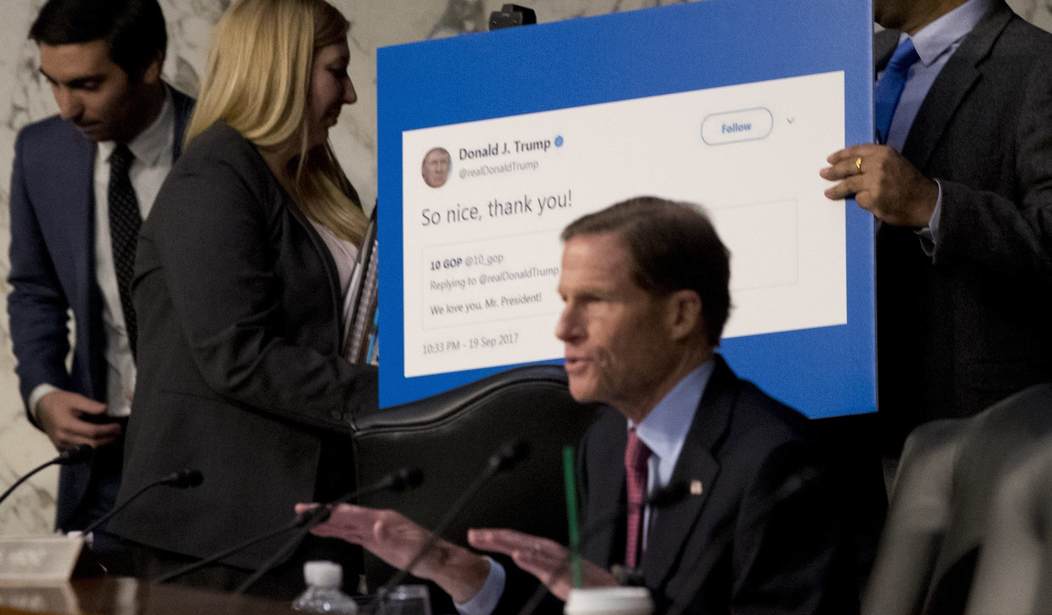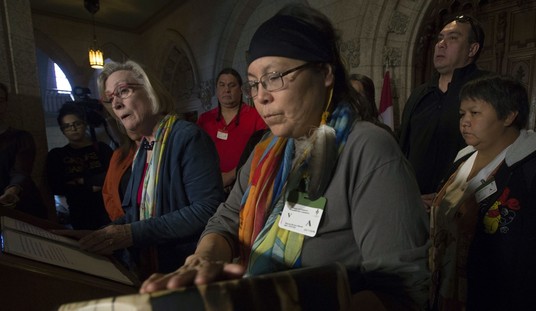WASHINGTON – Sen. Richard Blumenthal (D-Conn.) said Democrats should “reveal and shame” President Trump’s judicial nominees since they do not have the power to filibuster them.
The Senate Judiciary Committee recently approved 17 of Trump’s judicial nominees. The Trump administration released a list of 12 new judicial nominees last week.
Blumenthal argued that the Trump administration is “seeking to radically reshape our judiciary,” which poses a threat to the protection of “individual rights and liberties including reproductive rights, LGBT rights, voting rights, workers’ rights, environmental protection and much more.”
He cited the confirmation of Judge John Bush for the 6th Circuit last summer.
“He has spent a decade posting online under a pseudonym using crude vulgar language to demean gay people, reproductive rights; he likened abortion to slavery and politicians who he may have disagreed with. He’s just one example,” Blumenthal said during a conference call with reporters on Wednesday. “Mark Norris, he was confirmed last week by the Judiciary Committee on a party-line vote – he has made a career out of hyper-partisanship. In 2001-2009, he fought for a change in the Tennessee constitution to severely restrict reproductive rights.”
Blumenthal continued, “They have in mind a clear and cruel agenda to dismantle essential elements that protect rights and liberties fundamental to our Constitution and to American values.”
He urged voters to remember that these are lifetime appointments.
“They are also young; you know, they will be there for 30 and 40 years, literally. They will way outlast me as a practicing lawyer if I still can call myself one – they will way outlast most of us,” he said. “They will almost outlast our children because they will be on the bench as lifetime appointees for decades to come, so they are a lasting legacy of this administration that is cruel and lawless and we have to work to galvanize the American people so they understand what is at stake.”
Blumenthal, a member of the Senate Judiciary Committee, was asked how the Democrats should respond to Trump’s judicial nominations.
“We have a couple of powers: first of all, the power to reveal and shame, which we did with Brett Talley,” he said, referring to the blogger and lawyer who never tried a case and withdrew his U.S. District Court for the Middle District of Alabama nomination in December after pushback from lawmakers. Talley was unanimously deemed “not qualified” by the American Bar Association, only the third time the lawyers’ group had issued such a rating since 1989.
“You know there is, at some point, a shame level that the administration cannot surmount with some of these nominees,” Blumenthal added. “Second, we have the power to mobilize public opinion, which we have done sometimes but we need to do more. Third, we have the power of, ultimately, of the electorate.”
The Alliance For Justice online poll, which was conducted by Hart Research Associates among 1,034 adults from Jan. 8-10, found that 61 percent of Americans think Trump is “more likely to nominate judges who favor the wealthy and powerful over everyday people.” According to the poll results, 59 percent of the respondents said they lack confidence in Trump “nominating good federal judges and Supreme Court justices.”
“The respondent pool was 48 percent male and 52 percent female,” according to the Alliance for Justice.
Blumenthal said he hopes the GOP pays attention to “potential punishment at the polls” as the 2018 elections approach.
“We need to raise the visibility and awareness around this issue. In the last election, the Trump voters seem to have more intensity of interest on our courts. In fact, almost the majority of Trump voters, 49 percent, said this Supreme Court was important to them in casting their vote – a far smaller percentage of the Clinton voters said so – you know we have to raise the issue as important to voters,” he said.
“The reason why Trump voters cared so much is because they were angry, they felt aggrieved, they believed the courts were against them. They wanted to change them in a radical way, and that anger I think now will be felt more and more by the folks on our side – and I think it will be translated into the same kind of activism and aggrievement that was felt by the Trump voters last time,” he added.
A reporter asked Blumenthal how he plans to make the courts a more important issue among Democratic voters as the midterm elections approach.
“We’re going to be talking to the American public about the third branch of government and why it is important to them. It is so often neglected because judges operate in a largely invisible environment, quite frankly, federal courthouses still have no TV exposure, as you know, even though many of us have advocated for TV coverage to be permitted and radio,” he replied.
“But still, coverage is minimal compared to the other branches of government – judges need no public for what they do. They are bound by the rules of ethics, so it is the least visible but often the most powerful branch of government. We need to overcome it by talking straight to the American people,” he added.
Blumenthal argued that the judiciary will ultimately not “look like our nation” if the Senate continues to confirm Trump’s nominees.
“It will be, if permitted to continue, a judiciary that doesn’t look like our nation and doesn’t think like our nation. And let’s look at, first of all, what it looks like: 91 percent of the nominees are white, 81 percent are male, 58 judicial nominees so far, and just one nominee is African-American,” he said. “That is one of the largest number of the nominees in history and the Senate has confirmed 12 circuit court judges in 2017 – the most circuit court confirmations in the first year of any presidency since the circuit courts were created.”
The judiciary, the senator added, “is the way we enforce our rights – very simply, rights without enforcement are dead letter and meaningless.”









Join the conversation as a VIP Member